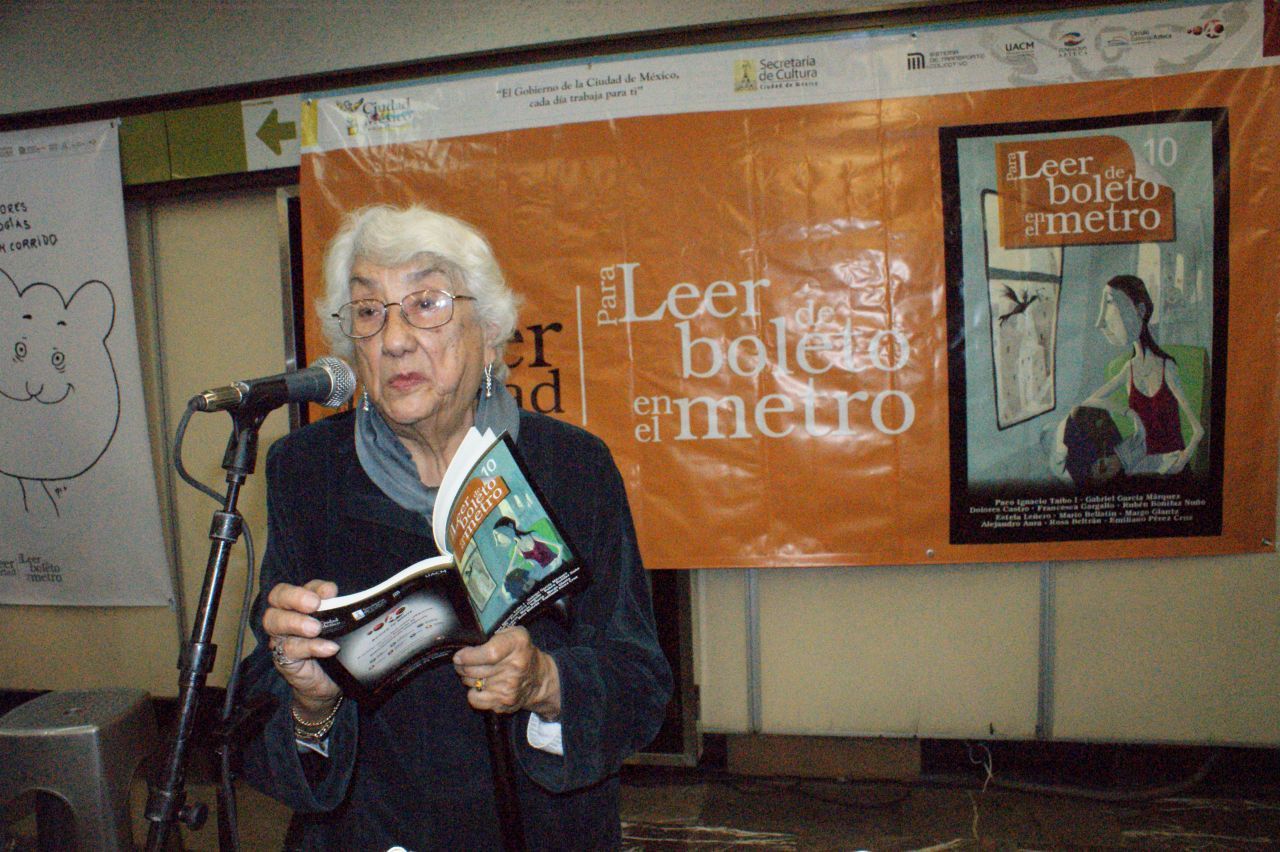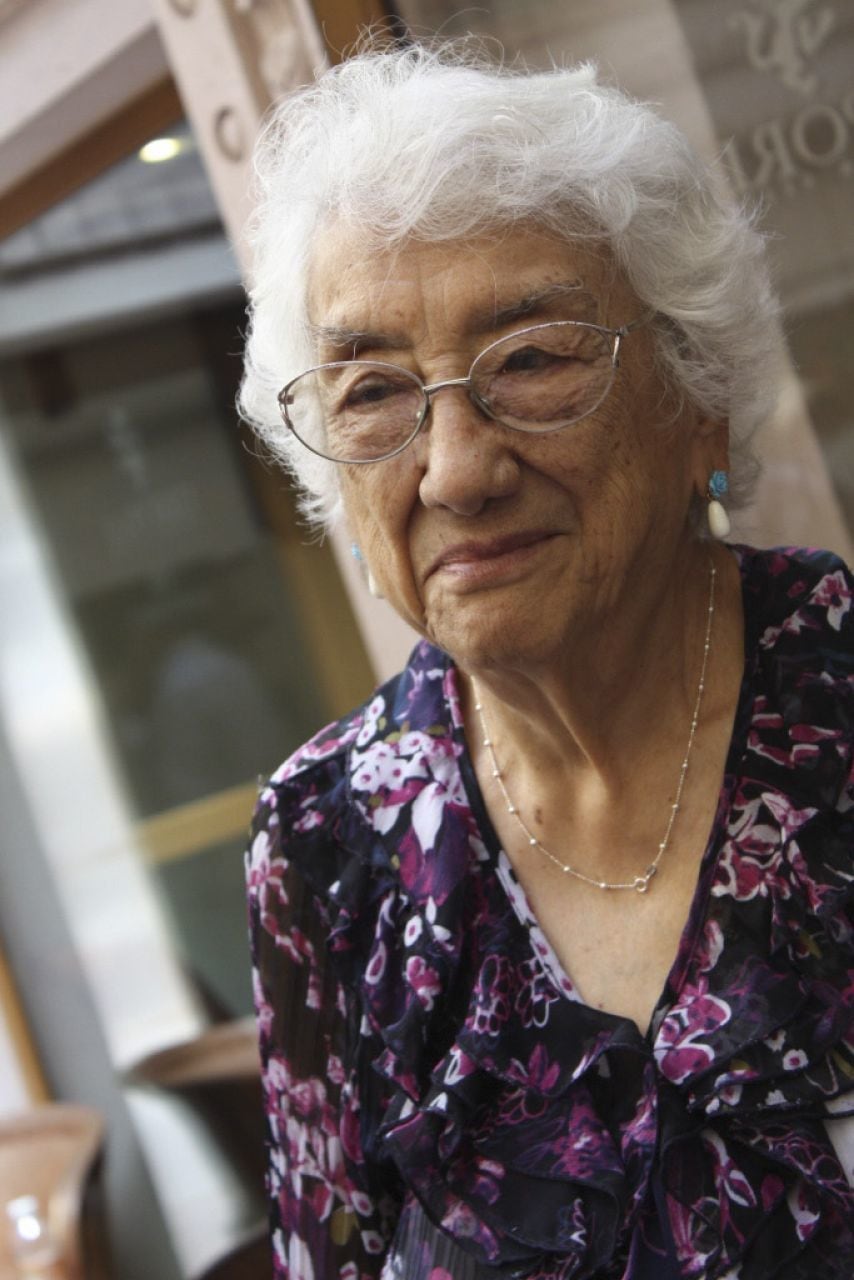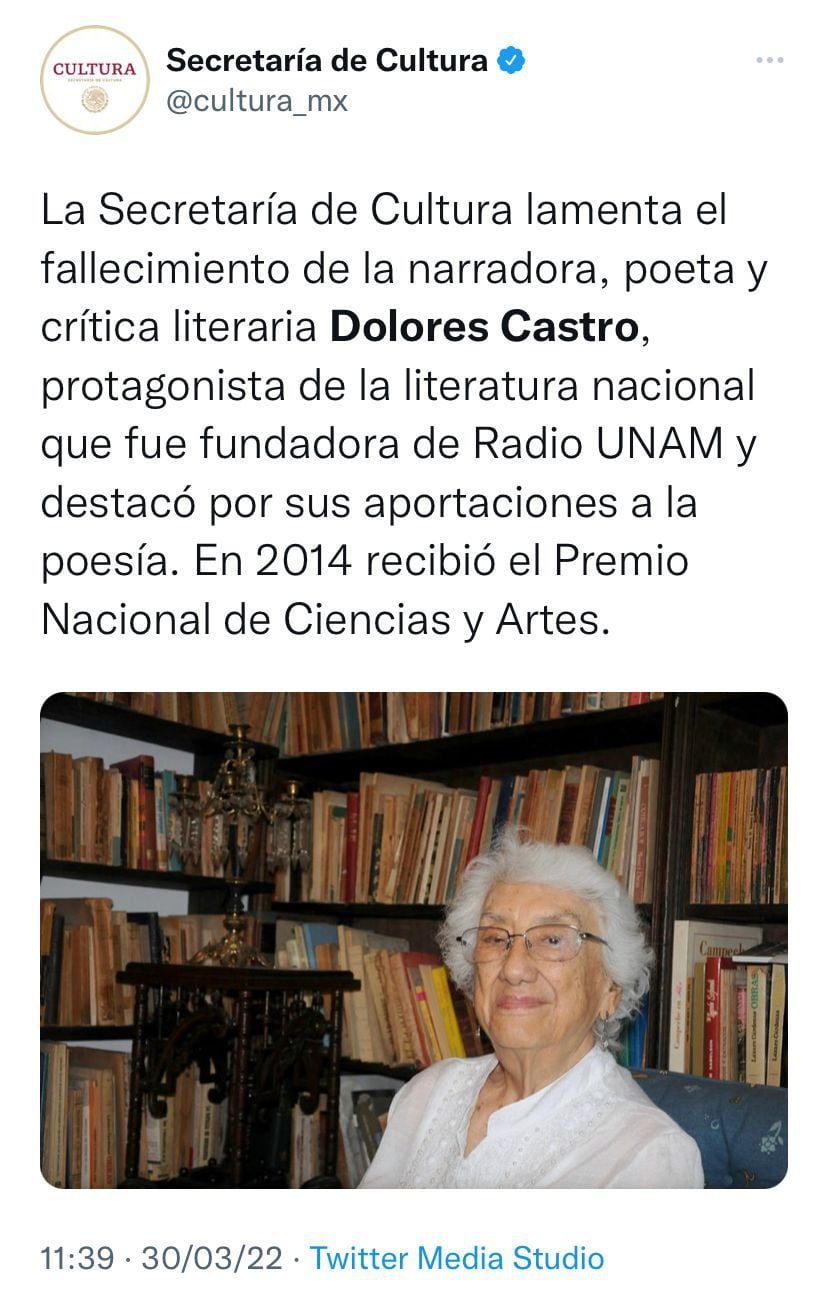
Dolores Castro Varela, a Mexican poet, essayist and narrator, died this Wednesday, March 30 at the age of 98 at the Angeles Hospital in Mexico City. According to local media statements by her daughter Dolores Peñaloza, the writer's death resulted from complications in the biliary tract.
The Mexican poet was admitted to the hospital last Monday; that same day in the morning she had attended the vicinity of the College of Sciences and Humanities (CCH) campus Naucalpan to give a talk to the students.
The writer left a wide legacy to literature, as well as being a teacher and founder of Radio Universidad Nacional Autónoma de México (UNAM). Her career and talent won her several prizes, including the National Science and Arts in the Area of Linguistics and Literature (2014) and the José Emilio Pacheco Medal (2016), as well as winning the Ramón López Velarde Ibero-American Poetry Prize (2013).
Among his most important works are titles such as On Earth Is Sounding (1959), Soles (1977), Intimate Guests (2004), Sound in Silence (2000), The Transfigured Heart (1949), Something Hurts the Air (2011) and the poetry book What is it what has been lived? (1980) which won her the Mazatlan National Poetry Prize.

A poet, narrator, essayist and literary critic, Dolores Castro was born on April 12, 1923 in the state of Aguascalientes, and later his family moved to Zacatecas. Once settled in Mexico City, he studied law at the National Autonomous University of Mexico (UNAM) and later pursued a master's degree in Modern Literature at the Faculty of Philosophy and Letters of the same institution.
Years later, Dolores Castro studied Stylistics and Art History at the Complutense University of Madrid, Spain, as well as Linguistics and Literature at the Association of Universities and Institutions of Higher Education (AUNIES). He also obtained academic radio training at the Latin American Institute for Educational Communication (ILCE).
Her great academic career led the poet to forge herself alongside renowned artists and intellectuals, including Rosario Castellanos, Jaime Sabines, Luis Villoro, Sergio Galindo, Emilio Carballido, Luisa Josefina Hernandez and Griselda Alvarez.
Similarly, the academic was a member of the group of Ocho Mexican Poets, where she shared her taste for writing with characters such as Alejandro Avilés, Roberto Cabral del Hoyo, Javier Peñalosa, Honorato Magaloni Duarte, Efrén Hernández, Octavio Novaro and Rosario Castellanos.

Teaching was always an important pillar in Dolores Castro's life, since until days before her death she continued to share her knowledge and talent with new generations. The Mexican poet and narrator taught Fine Arts classes in Veracruz and the State of Mexico as well as in the city of Cuernavaca in Morelos.
Likewise, she was a teacher at institutions such as the Iberoamerican University, the Carlos Septién García School of Journalism and at the Writers School of the General Society of Writers of Mexico (Sogem). In addition, she was the founder of the then called Acatlan National School of Professional Studies of the National Autonomous University of Mexico (UNAM).
Dolores Castro also worked as editor in the magazine Poesía de América and Barcos de papel; in addition to being one of her work for Radio UNAM, she was a producer of radio programs and hosted Poetas de México on Canal 11.

The news of the death of Dolores Castro caused a great impact on the intellectual community of Mexico, so several institutions spoke out to give their condolences to their families but also to recognize the trajectory and legacy of the Mexican poet.
“It is with deep sadness that we mourn the death of the poet Dolores Castro, whose work leaves an essential legacy in the letters of Mexico. To his memory, @cultura_mx and INBAL will pay homage on May 7 in the Main Hall of @PalacioOficial. We embrace his family,” the National Institute of Fine Arts and Literature communicated through its Twitter account.
In this way, Mexico dismisses one of the country's most endearing intellectual voices whose legacy will prevail for generations in his works and in the lives of the students he formed, as well as in the two literature awards that bear his name: Dolores Castro State Poetry Prize awarded by the Tlaxcalteca Institute of Culture and the Dolores Castro Award for Narrative and Poetry written by Women awarded by the municipality of Aguascalientes.
KEEP READING:
Últimas Noticias
Debanhi Escobar: they secured the motel where she was found lifeless in a cistern

The oldest person in the world died at the age of 119

Macabre find in CDMX: they left a body bagged and tied in a taxi
The eagles of America will face Manchester City in a duel of legends. Here are the details

Why is it good to bring dogs out to know the world when they are puppies




